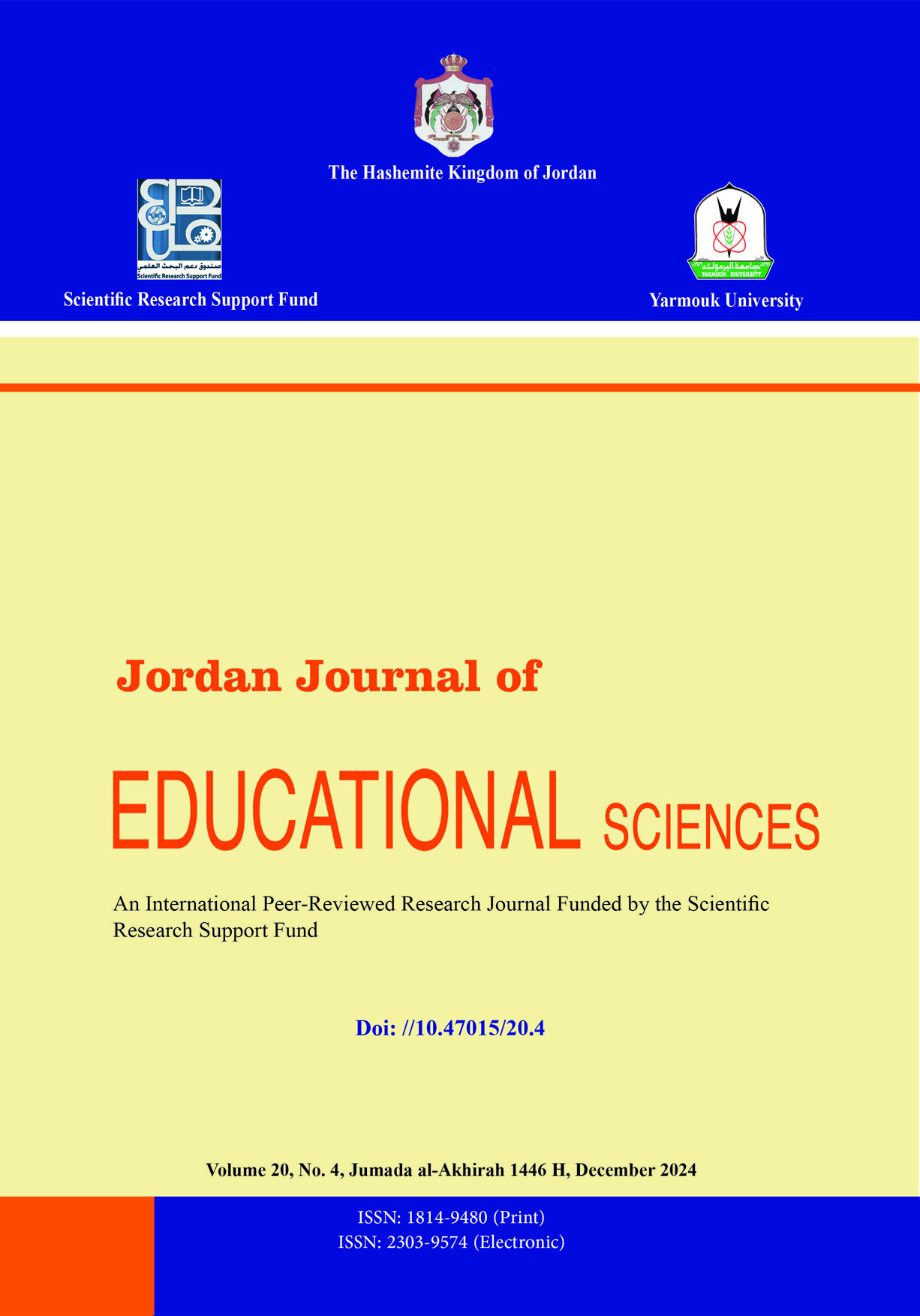The Effect of Using Programmed Instruction on Sixth-Grade Students’ Achievement in Arabic language and Their Attitudes Towards It
DOI:
https://doi.org/10.47015/20.4.13Abstract
Objectives: This study aimed to determine the effect of using programmed instruction on sixth-grade students' achievement in the Arabic language and their attitudes towards it in Jordan. Methodology: To achieve the study objectives, an achievement test with 25 items and a scale of attitudes towards Arabic with 39 phrases was prepared. Two teaching units from the sixth-grade Arabic language textbook were developed. In the first semester of the academic year 2022/2023, a sample of 66 sixth-graders from Irbid Directorate of Education was selected. The sample members were chosen purposefully, and they were split into two groups: a control group, which consisted of 33 students who studied using the conventional approach, and an experimental group, which consisted of 33 students who studied using programmed instruction. Results: According to the study's findings, there were statistically significant differences between the average student scores on the post-achievement test attributed to the teaching method, in favor of the experimental group, as well as between the average student scores on the attitude scale attributed to the teaching method, also in favor of the experimental group. Conclusion: In light of these results, the study suggests implementing such Arabic language programmed instruction at all educational levels, starting with the lower levels and upper elementary stages, and incorporating them into instructional plans.
Keywords: Programmed instruction; achievement; attitudes; Arabic language; sixth-grade students.

